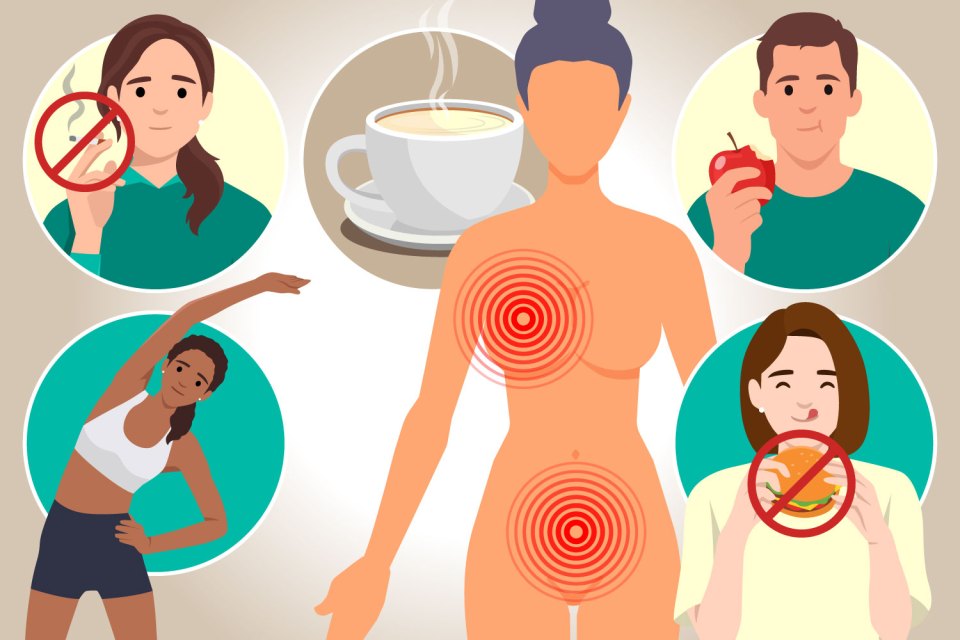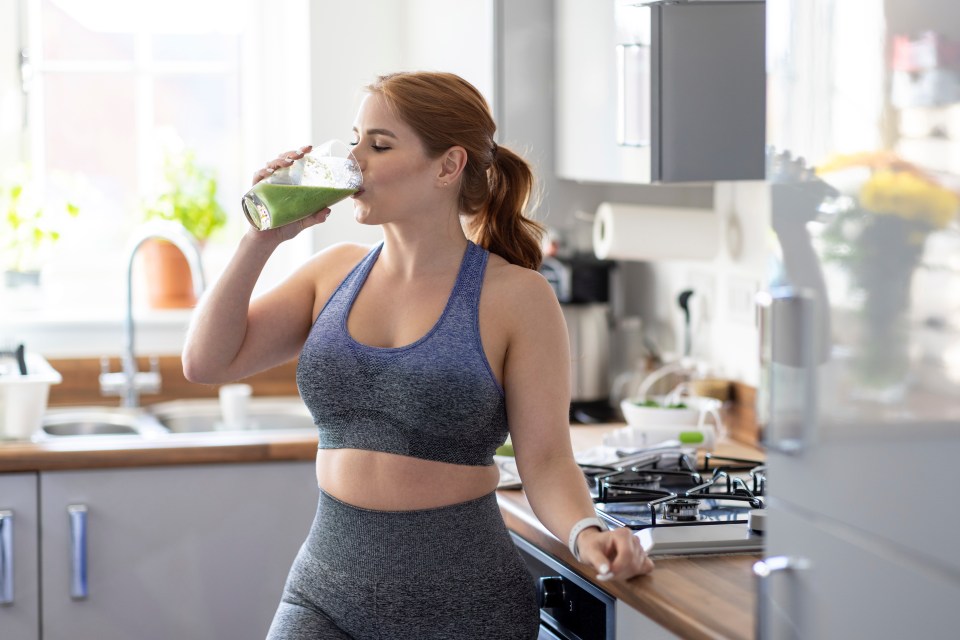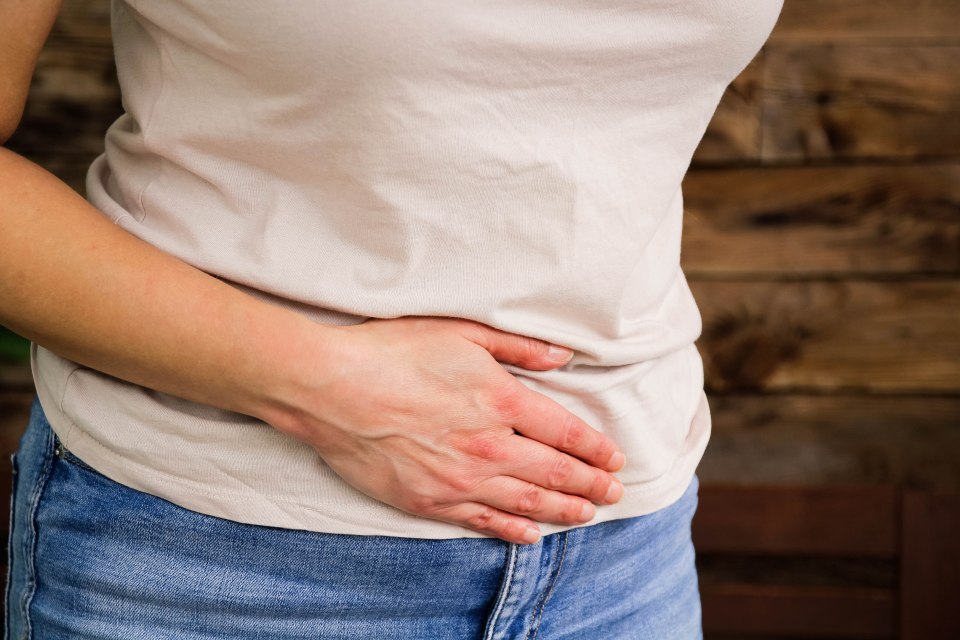SCIENTISTS have identified the 10 lifestyle tweaks that can drastically reduce your risk of bowel and breast cancer.
A major new report from the World Cancer Research Fund (WCRF) marks an “immense step forward” in understanding how daily habits are key to preventing the killer disease, experts said.
Maintaining a healthy weight, exercising, prioritising fibre-rich foods, and drinking more coffee are among the simple lifestyle changes you can make to reduce your risk of two of the UK’s biggest cancers – bowel and breast cancer.
In the UK, 11,500 women and 85 men die from breast cancer every year, and around 16,800 lives are lost to bowel cancer annually.
Many studies have previously focused on how single nutrients or food groups can impact cancer risk.
But the new report by WCRF International emphasises how analysing Dietary and Lifestyle Patterns (DLPs) together can help researchers and the public to better understand the factors that affect cancer risk.
Dietary patterns refer to quantities, proportions, combinations and varieties of different foods, drinks and nutrients, and the frequency with which they are consumed.
DLPs refer to a combination of a certain dietary pattern with other measures such as body weight and behaviour-related risk factors including physical activity, alcohol consumption and smoking.
Experts from the Harvard T.H. Chan School of Public Health and the Health Research Institute of the Balearic Islands evaluated global research on how diet, nutrition, physical activity, and body weight affect breast and bowel cancer incidence and mortality.
WCRF International then worked with an expert panel who judged the evidence and made the cancer-preventing dietary and lifestyle recommendations.
Recommended lifestyle changes to reduce bowel cancer risk
Based on this evidence, they recommended a DLP for reducing the risk of bowel cancer that includes:
- Maintaining a healthy weight and regularly taking part in physical activity
- Prioritising fruit and vegetables, as well as fibre-containing foods
- Consuming coffee and food and beverages that contain calcium such as dairy products
- Reducing the consumption of sugar sweetened beverages and alcohol
- Avoiding smoking
- Avoiding eating processed meats
Global Cancer Update Programme collaborator and Professor of nutrition and epidemiology at the Harvard School of Public Health, Prof Edward Giovannucci, said: “The work by the Global Cancer Update Programme in reviewing and synthesising the literature on the role of dietary and lifestyle patterns in relation to bowel cancer risk and mortality represents an immense step forward in how healthy lifestyle habits are key to prevention of cancer.
“These new findings strongly support that adopting a healthy pattern of diet, maintaining a healthy weight, staying physically active, and embracing health-conscious habits, such as avoiding tobacco and moderating alcohol, are collectively associated with a lower risk of bowel cancer.”
Recommended lifestyle changes to reduce breast cancer risk
For breast cancer incidence and mortality, they recommended a DLP that includes:
- Maintaining a healthy weight and regularly taking part in physical activity
- Prioritising fruit and vegetables and fibre-containing foods
- Lowering consumption of red and processed meat and sugar sweetened beverages
- Avoiding alcohol and smoking
How to check your breasts
It is important to regularly check your breasts for any changes. Breast tissue reaches all the way up to your collarbone and across to your armpit, so it’s vital to check these areas too.
If you feel or see any changes in your breast you should always consult your GP.
Charity CoppaFeel! recommends checking your breasts monthly, so you can pick up on any changes quickly.
Breasts do change naturally as part of your monthly menstrual cycle, so you should get to know your breasts, how they feel and what changes they usually go through to know if anything is out of the ordinary.
Five-step check
There is a five-step self exam you can do at home to check for any changes.
Step one: Begin by looking in a mirror, facing it with your arms on your hips and your shoulders straight. You should be looking for any dimpling, puckering, bulging skin, redness, soreness, a rash or changes in the nipple.
Step two: Still looking in the mirror, raise both arms above your head and check for the same changes.
Step three: With your arms still above your head, check for any fluid coming from the nipples. This can include milky, yellow or watery fluid, or blood.
Step four: While lying down use your opposite hand to check each breast. Using a few fingers, keeping them flat and together, go in a small circular motion around your breasts. Make sure you feel the entire breast by going top to bottom in these small circles. It helps to develop a system or pattern to make sure every inch is covered. Use light pressure for the skin and tissue just beneath, medium pressure for the tissue in the middle of your breasts, and firm pressure to feel the tissue at the back, feeling down to your ribcage.
Step five: Feel your breasts while either standing or sitting, using the same small circular motions.
Global Cancer Update Programme collaborator and Lead Researcher at the Health Research Institute of the Balearic Islands and the Physiopathology of Obesity and Nutrition Networking Biomedical Research Centre, Dr Dora Romaguera, said: “This report provides clear evidence that by looking at our whole diet and the way we live, there are clear steps to recommend to women to lower their breast cancer risk. Importantly, this work highlights the greatest benefit is found when adhering to most aspects of a cancer preventative pattern simultaneously.
“By looking out our whole diet and the way we live, there are clear steps we can take to minimise our risk of breast cancer.”
Bowel cancer screening in the UK
IN the UK, the NHS offers a bowel cancer screening programme to individuals aged 50 to 74, using a home test kit called the Faecal Immunochemical Test (FIT), which checks for hidden blood in stool samples.
The NHS lowered the age from 60 to 50 in January this year in a massive win Dame Deborah James who campaigned for the change before losing her battle with bowel cancer in 2022.
The test involves collecting a small stool sample at home, placing it in a provided tube, and returning it to the NHS for testing.
The test can help detect bowel cancer at an early stage, when it’s easier to treat.
If you are eligible, you will receive an invitation and a test kit in the post.
But if you notice any symptoms of bowel cancer, contact your GP and don’t wait for your screening test.
Look out for the following symptoms:
- Changes in your usual bowel habits for three weeks or more
- Tummy discomfort
- Blood in poo
- Diarrhoea or constipation for no obvious reason
- A feeling of not having emptied your bowels after going to the toilet
- Pain in your stomach or bottom
- Your poo is loose, pale or looks greasy











